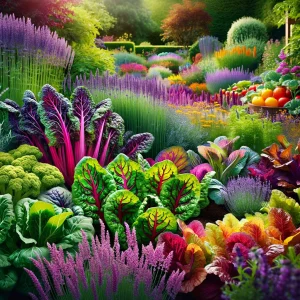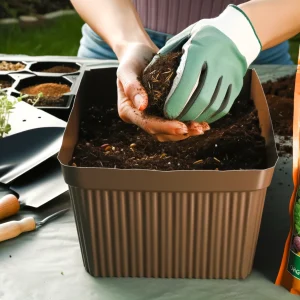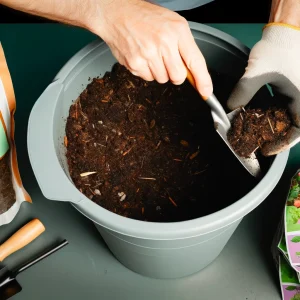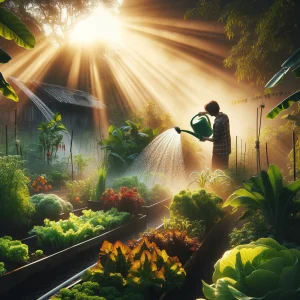In recent years, there’s been a burgeoning interest in edible gardening. This resurgence isn’t just a trend but a meaningful shift towards sustainability and wellness. The benefits of growing your food extend beyond the simple joy of gardening; they touch upon crucial aspects of health, sustainability, and the joy of integrating beauty and utility into our living spaces.

Health Benefits of Homegrown Produce
The health benefits of cultivating your fruits and vegetables are numerous. For starters, homegrown produce tends to be richer in nutrients than store-bought counterparts. The reason is simple: the shorter the harvest and consumption, the fewer nutrients are lost. Additionally, growing your food means you have control over how it’s grown. By opting for organic gardening methods, you can reduce or altogether avoid the use of synthetic pesticides and fertilizers, leading to cleaner, safer produce.

Sustainability at Your Fingertips
Edible gardens are a step forward in our journey towards more sustainable living practices. Growing food locally significantly reduces the carbon footprint of transporting food items from faraway places. Furthermore, edible gardens encourage biodiversity, providing a habitat for various pollinators. Water conservation is another crucial aspect, as home gardeners can implement efficient watering systems like drip irrigation, which are far more sustainable than broad-scale agricultural practices.
Blending the Edible with the Ornamental
Integrating edible plants into ornamental gardens is practical and can enhance your space’s aesthetic appeal. For a splash of colour, consider rainbow chard, which offers vibrant leaves and nutritional value. Culinary herbs like lavender and thyme double as beautiful, fragrant additions to any garden, attracting pollinators while providing fresh flavours for your kitchen. Edible flowers, such as nasturtiums and calendula, can be mixed among traditional ornamentals, adding a layer of beauty and taste to your garden palette.

Tips for Beginners
Starting an edible garden in spring sets the stage for a fruitful season. Here are some beginner-friendly tips for both container gardening and in-ground beds:
- Select Easy-to-Grow Plants: Tomatoes and peppers are great for beginners and can thrive in in-ground beds. For container gardening, herbs like basil and mint are perfect starters due to their manageable growth and usefulness in the kitchen.
- Soil Preparation: Start with high-quality, nutrient-rich soil in containers or beds. Incorporate compost to improve fertility and water retention.
- Watering and Maintenance: Regular watering is critical, but be mindful not to overwater. Implementing mulch can help retain soil moisture and suppress weeds. For pest control, opt for organic methods like neem oil or introducing beneficial insects like ladybugs.

Resources for the Budding Gardener
Several resources can help beginners get started on their gardening journey. Look into gardening apps for tracking plant growth and maintenance reminders. Websites offering organic seeds provide a great starting point for clean, sustainable gardening. Additionally, joining a local gardening club can offer community support and advice from more experienced gardeners.
The rise of edible gardens marks a return to simpler, more sustainable living. By growing our food, we reconnect with the earth, improve our health, and contribute to a more sustainable world. The benefits are immense, whether crafting a lush, ornamental garden that serves multiple purposes or starting a small herb garden on your windowsill. Happy gardening!